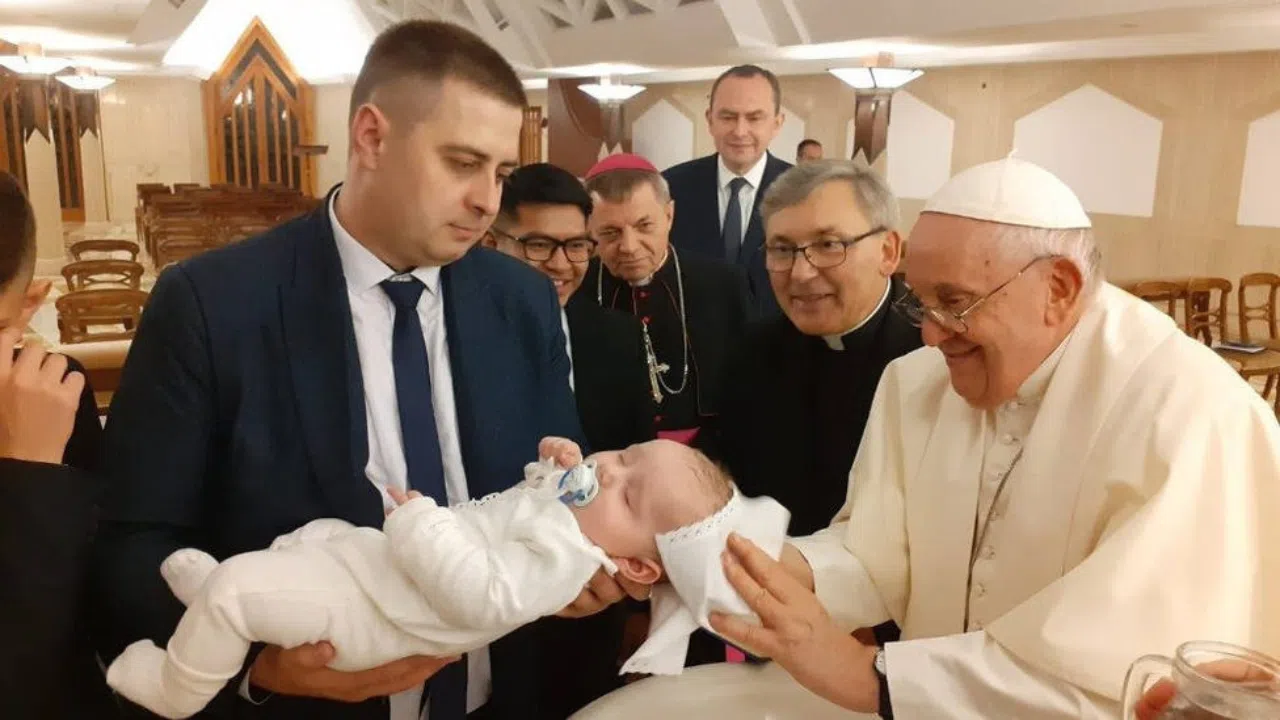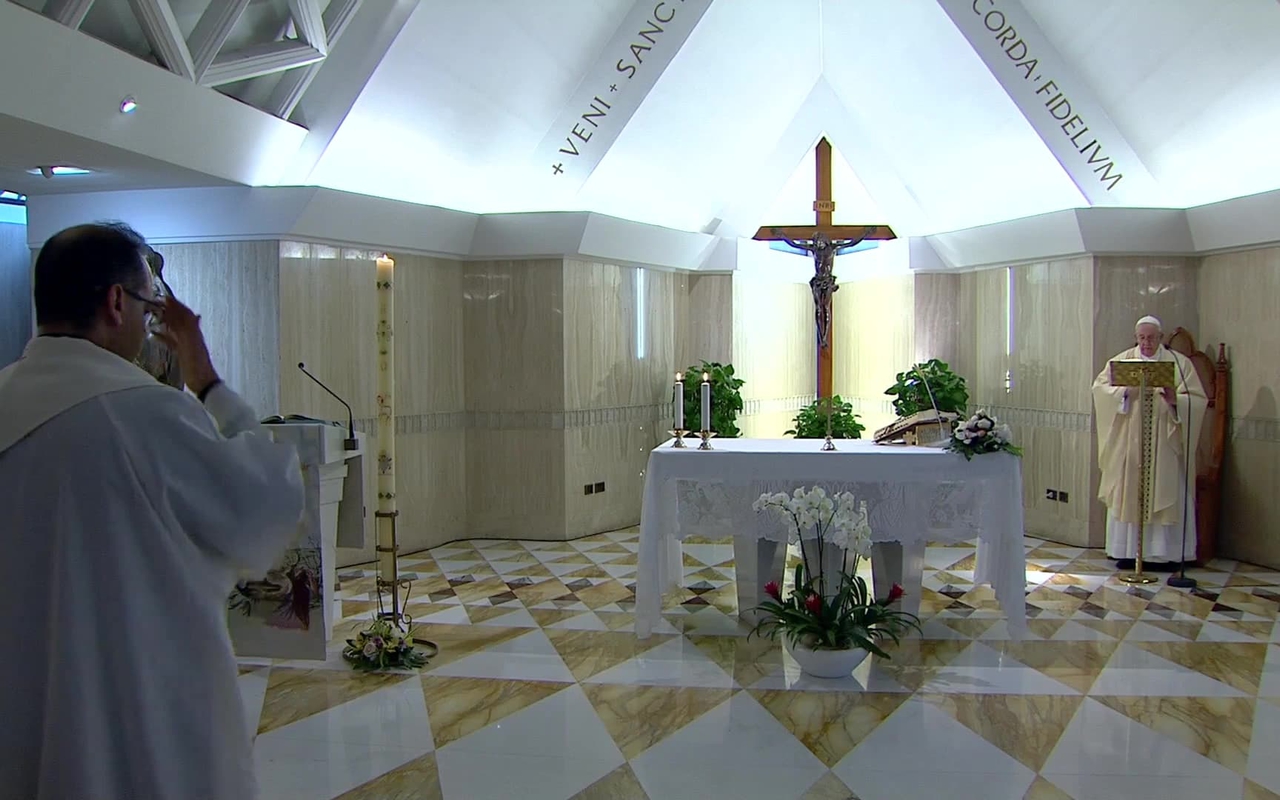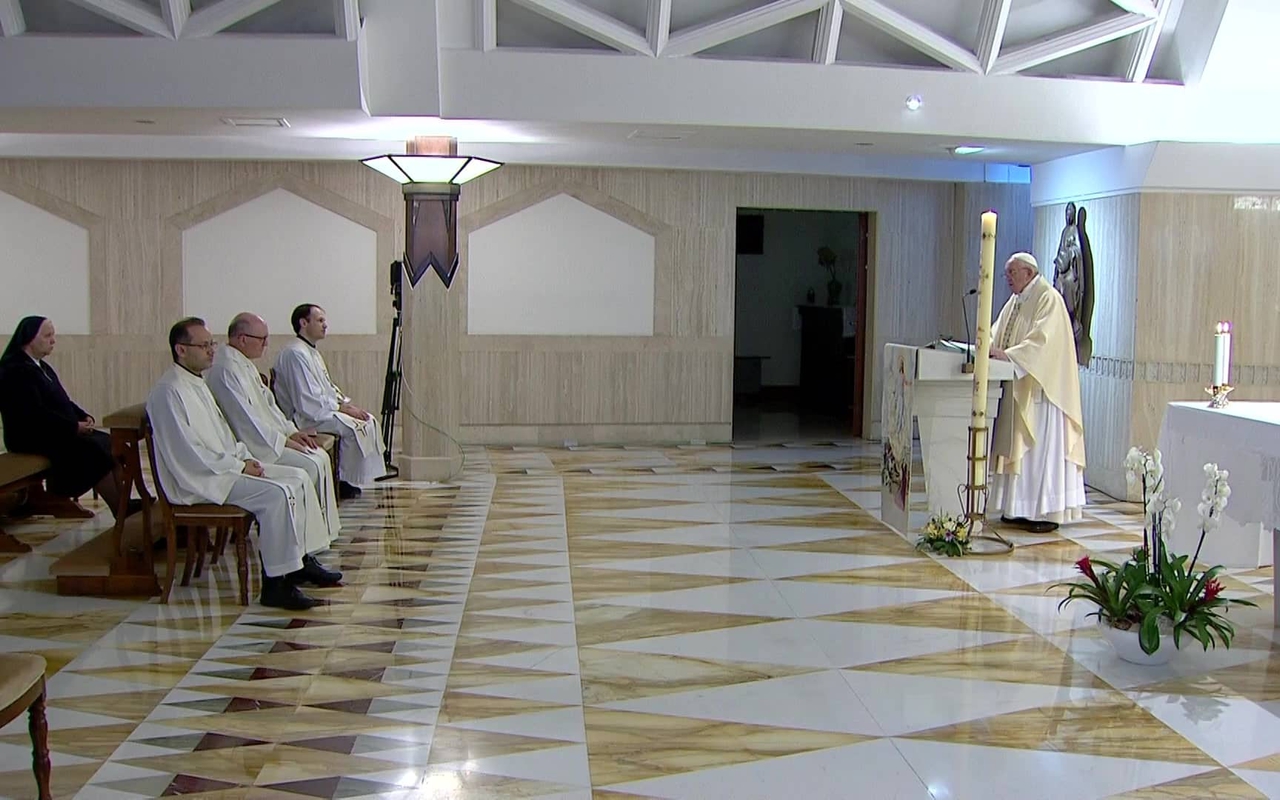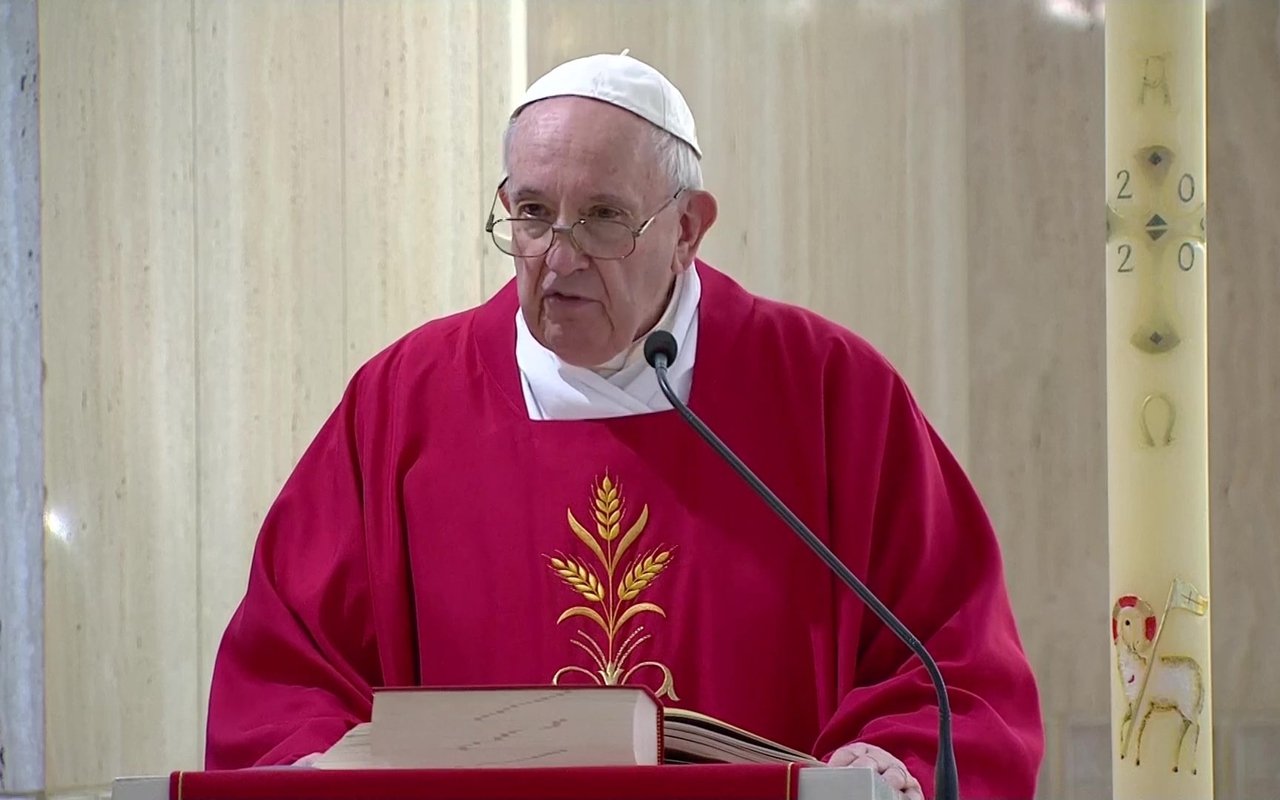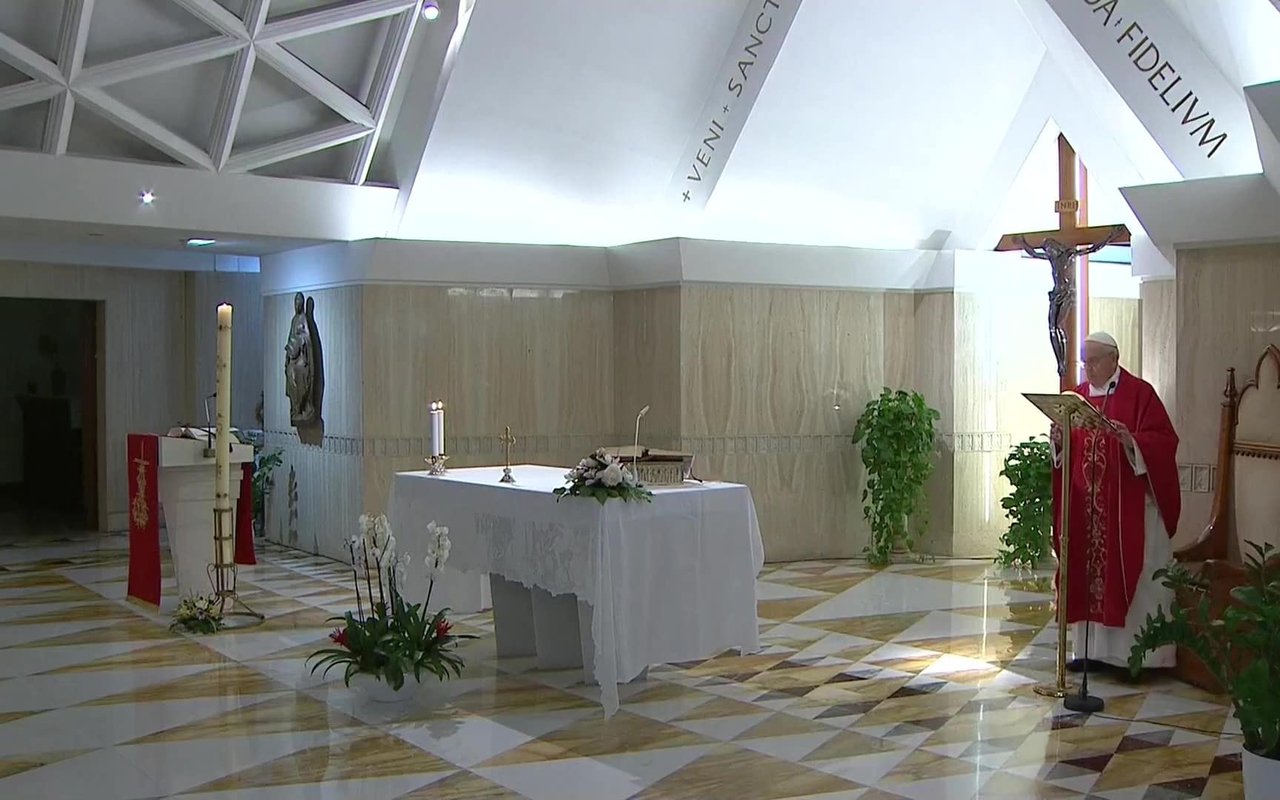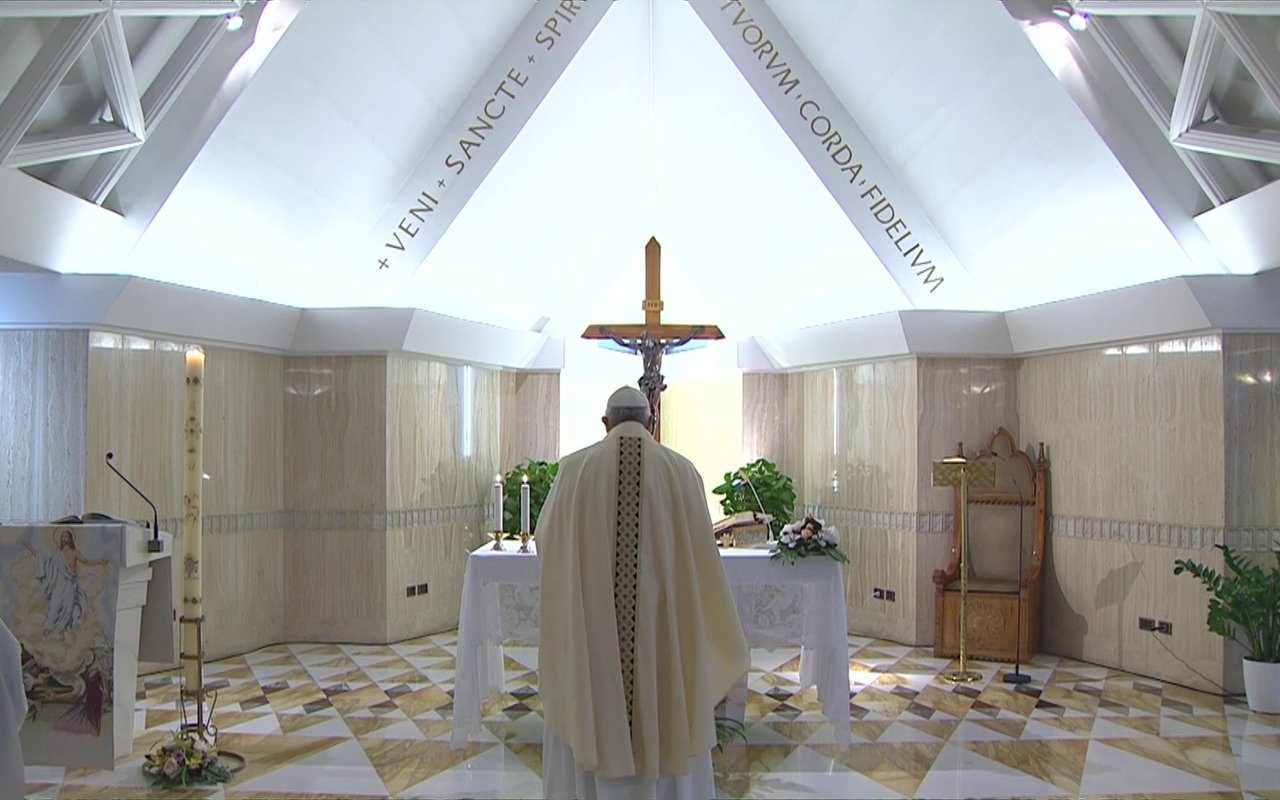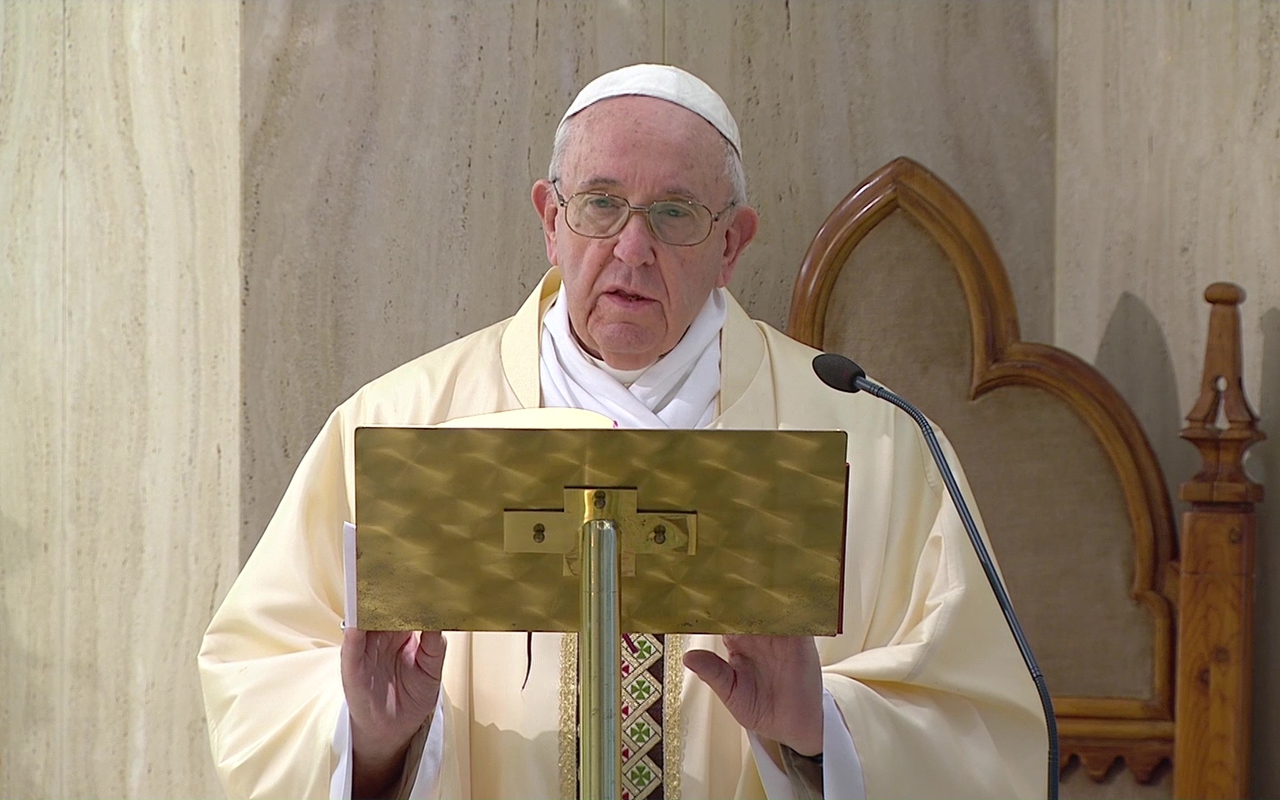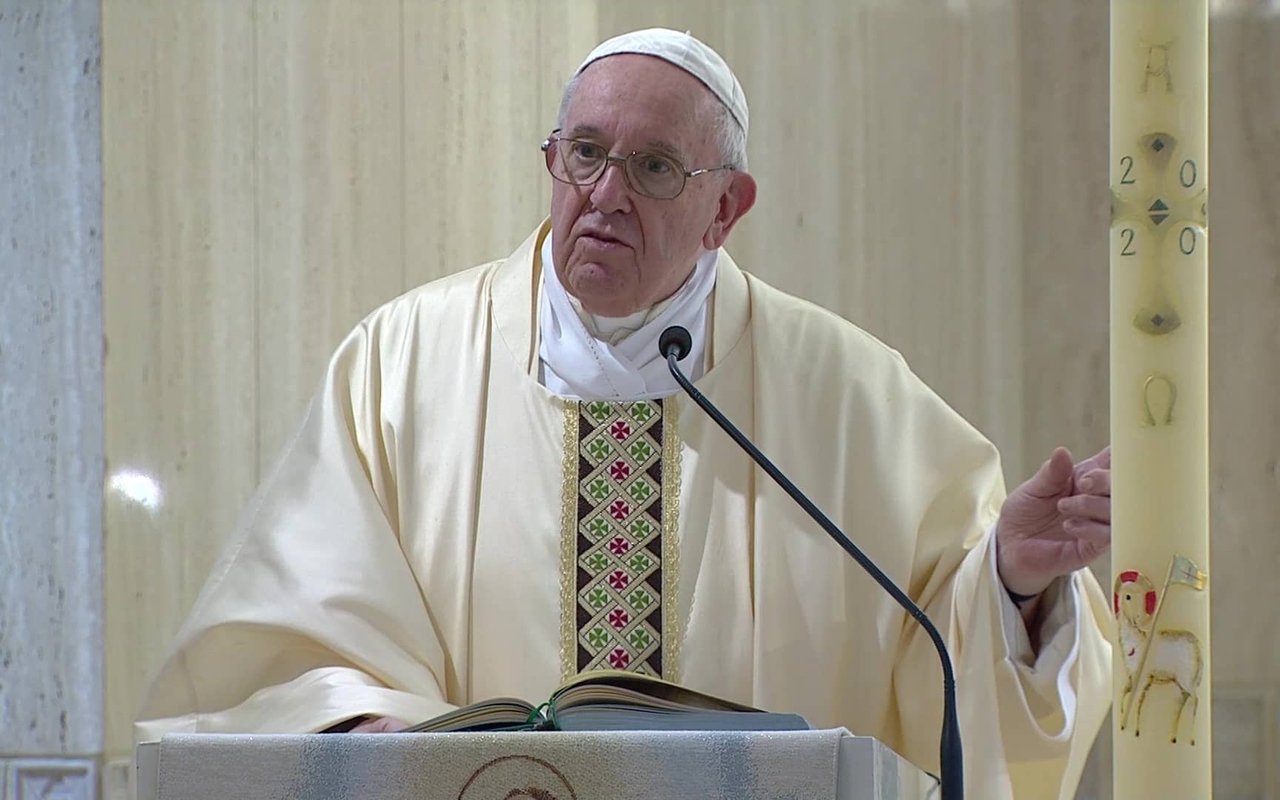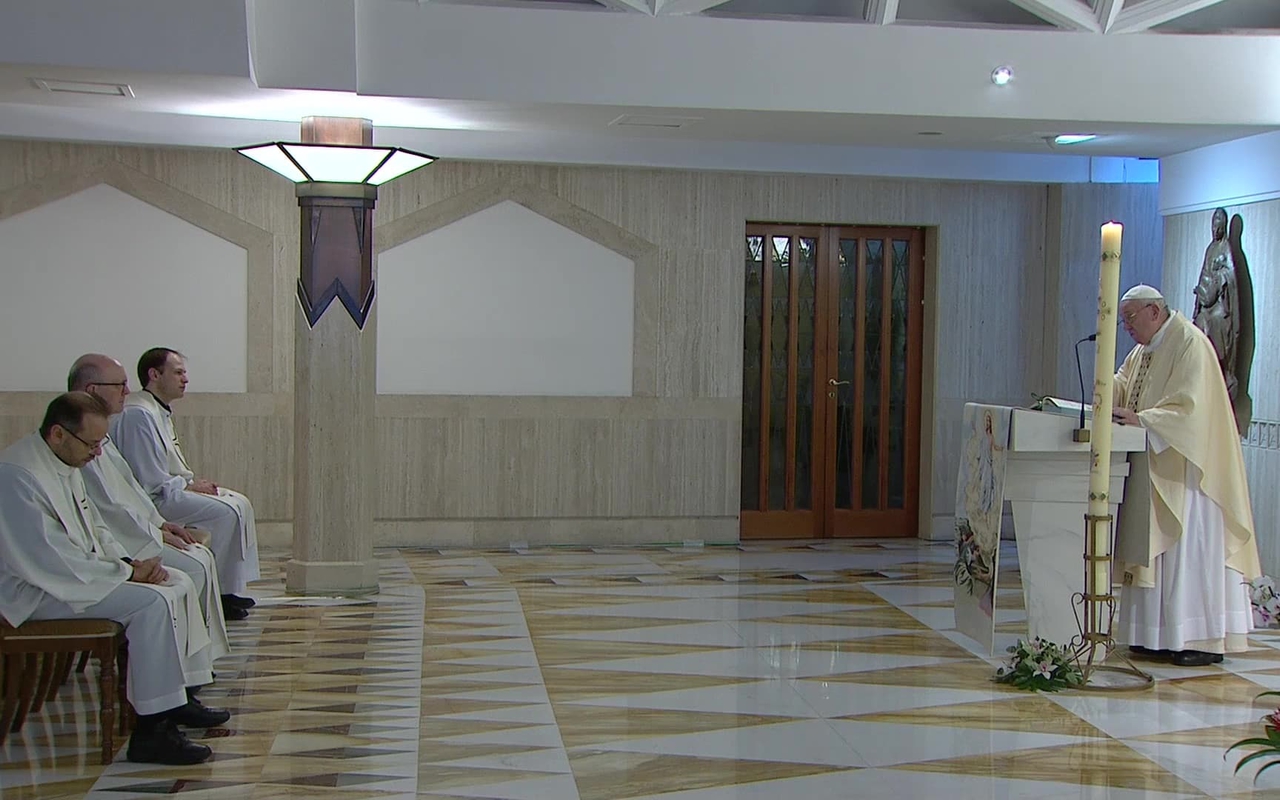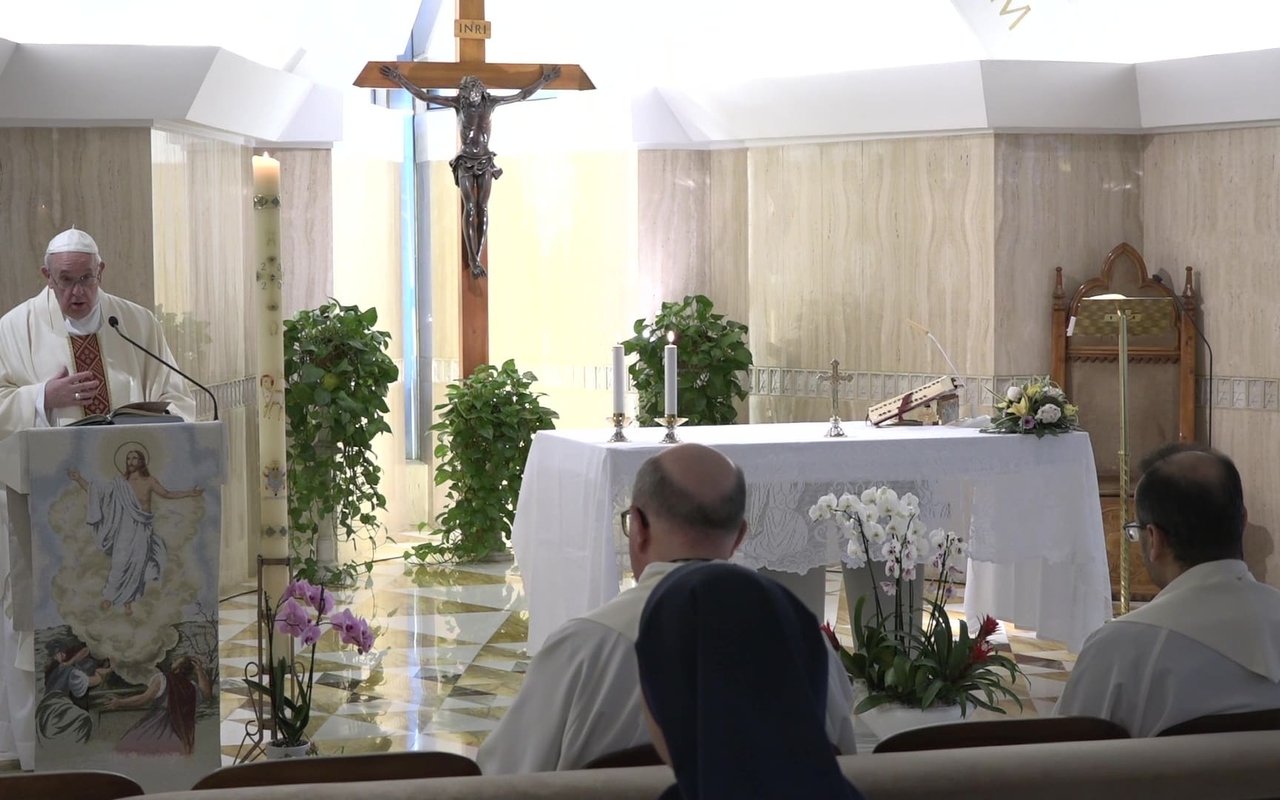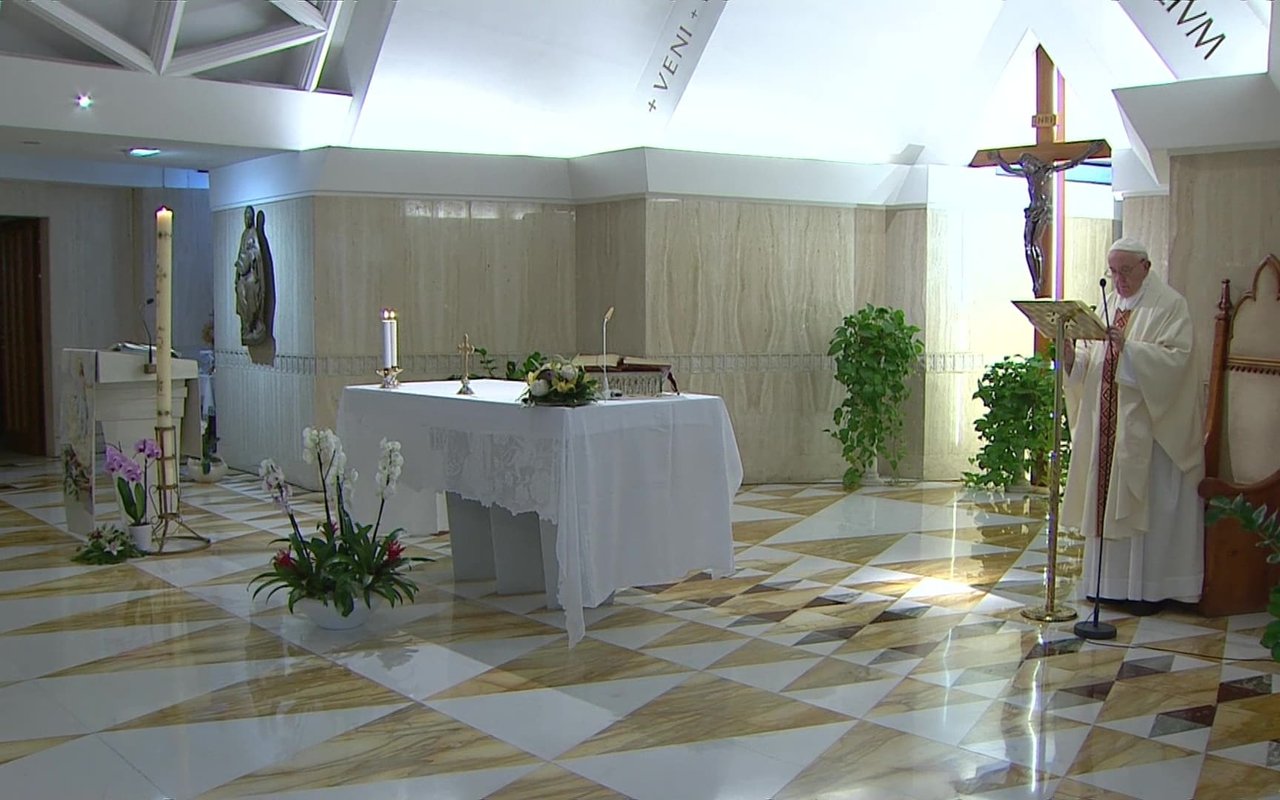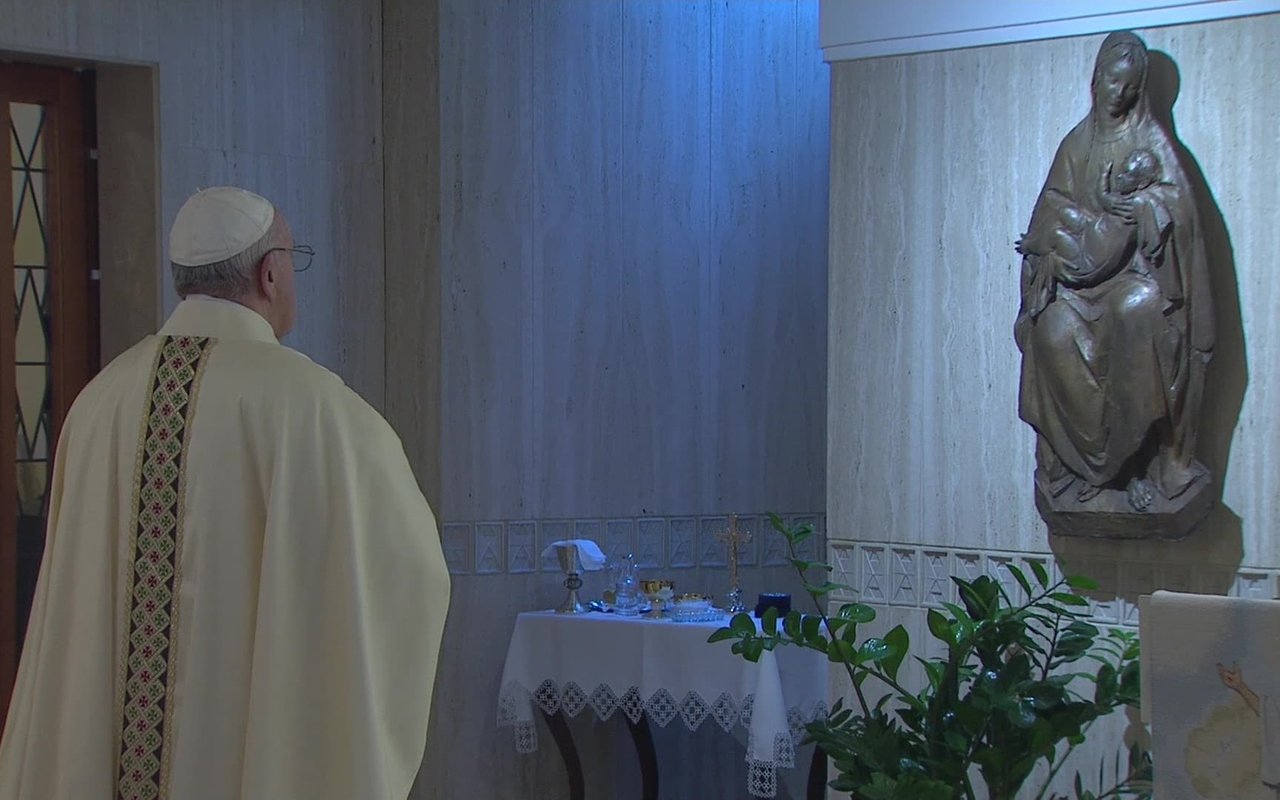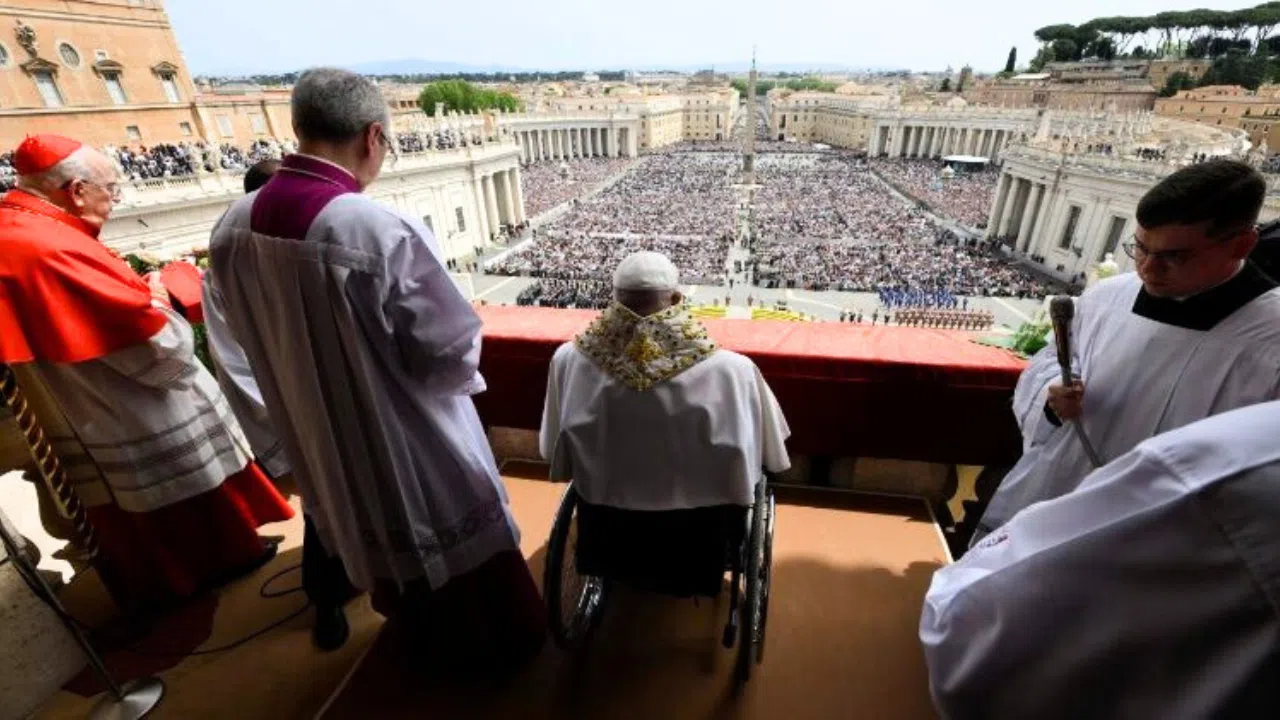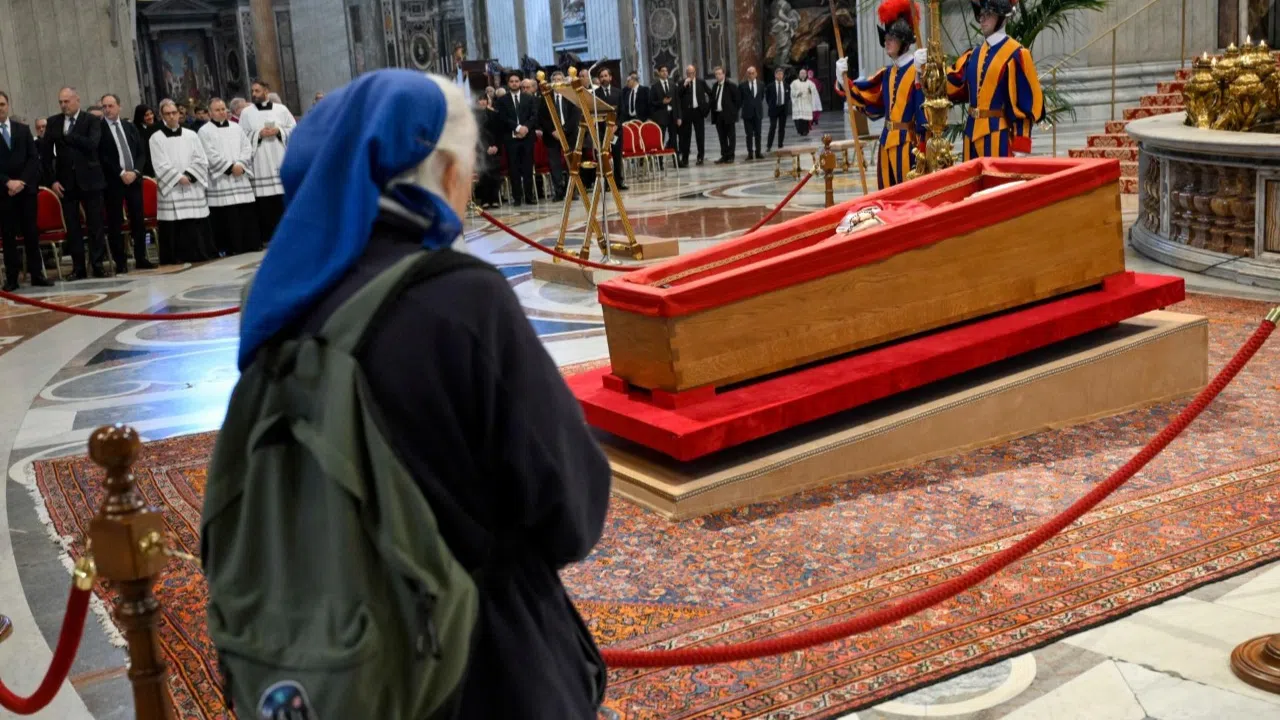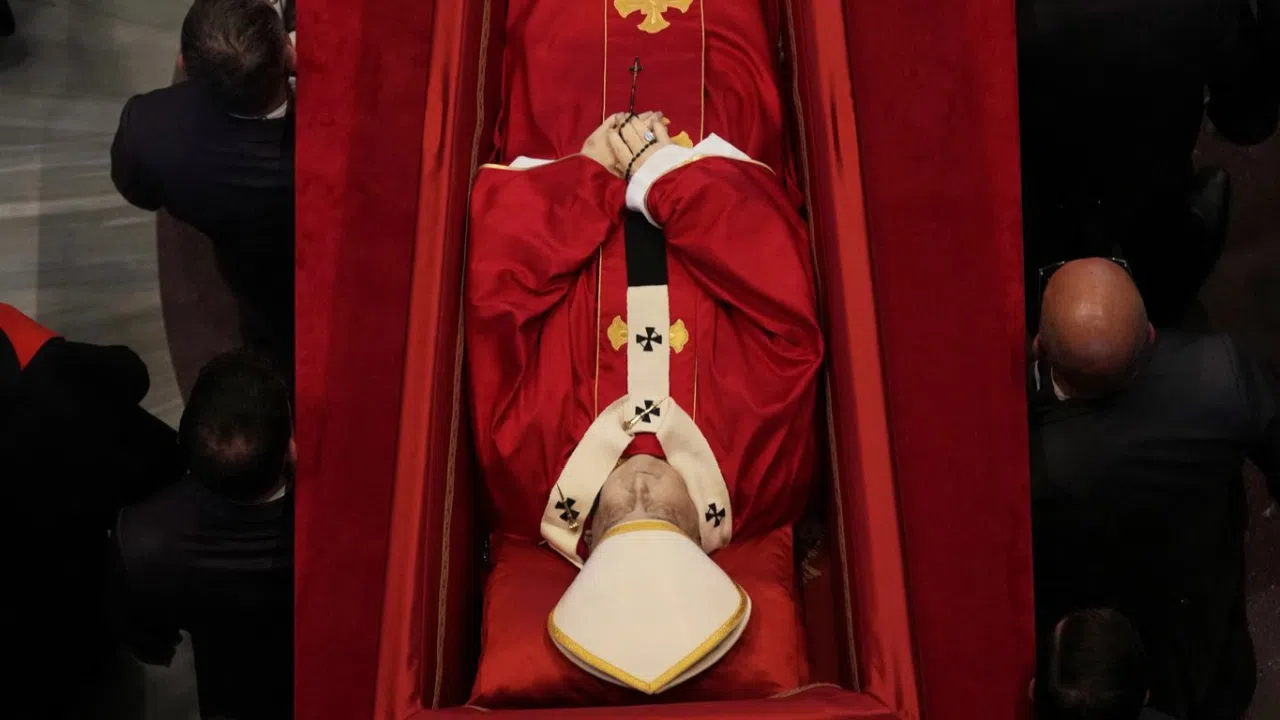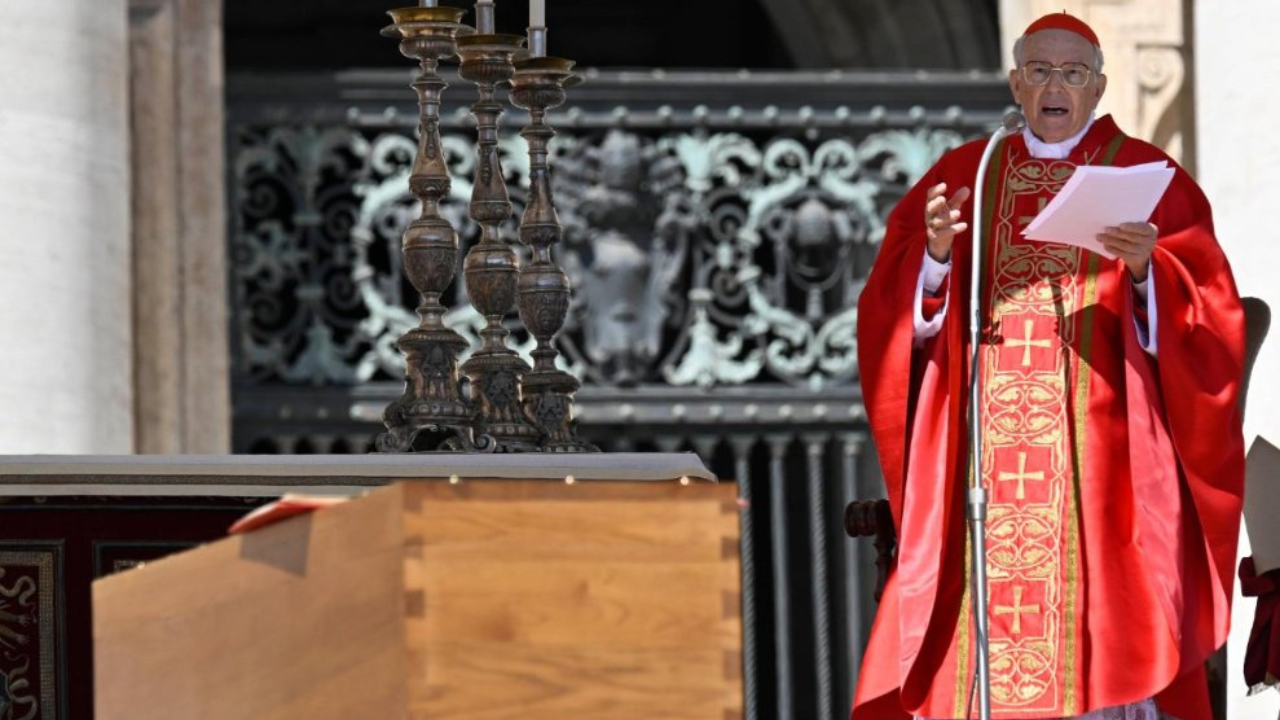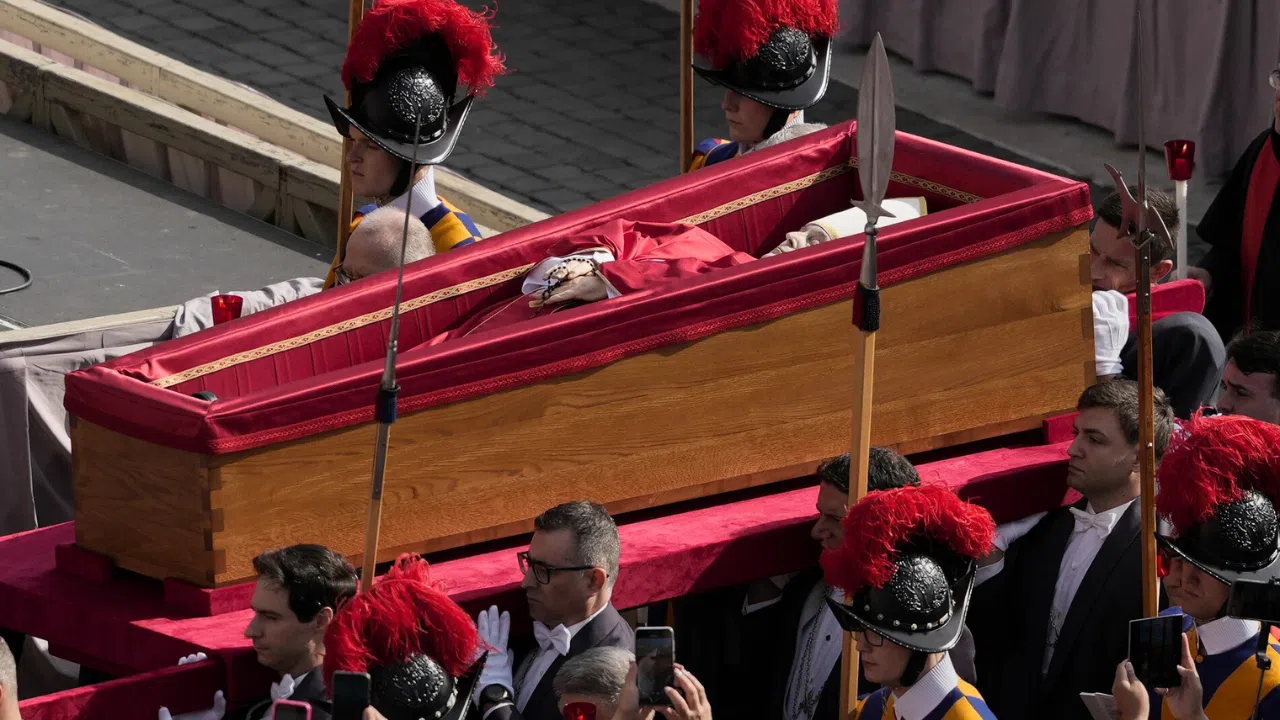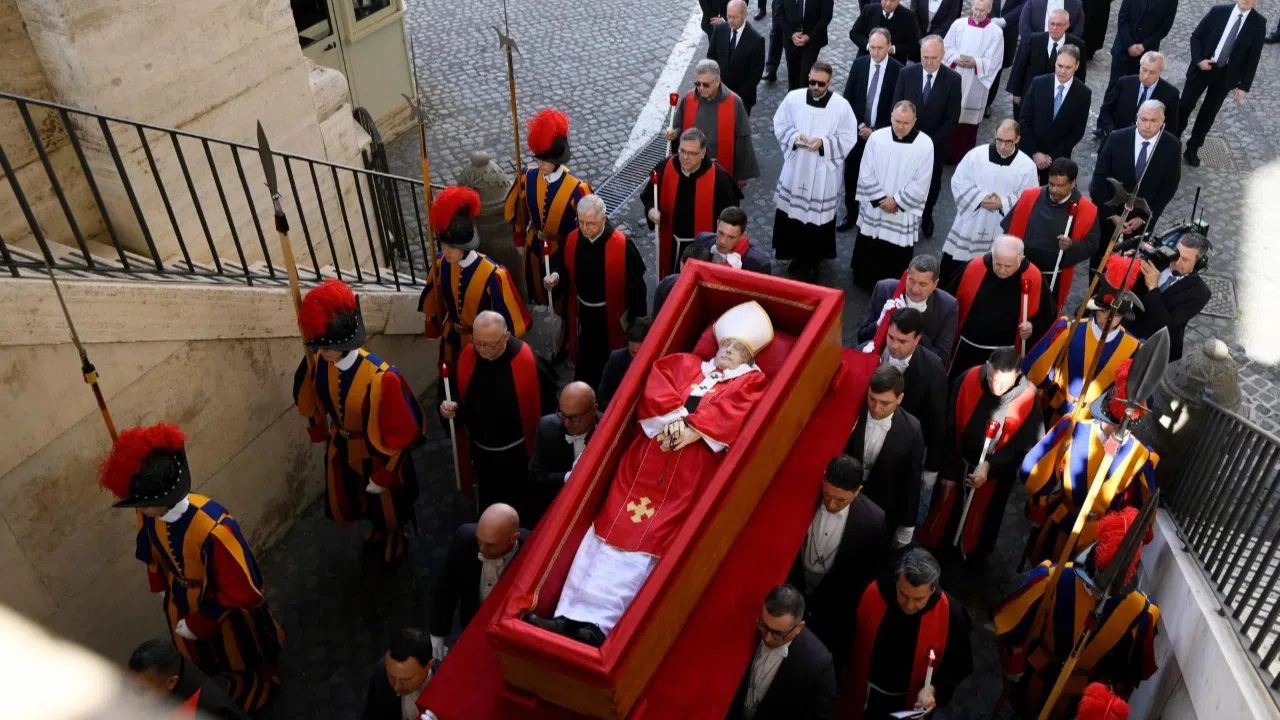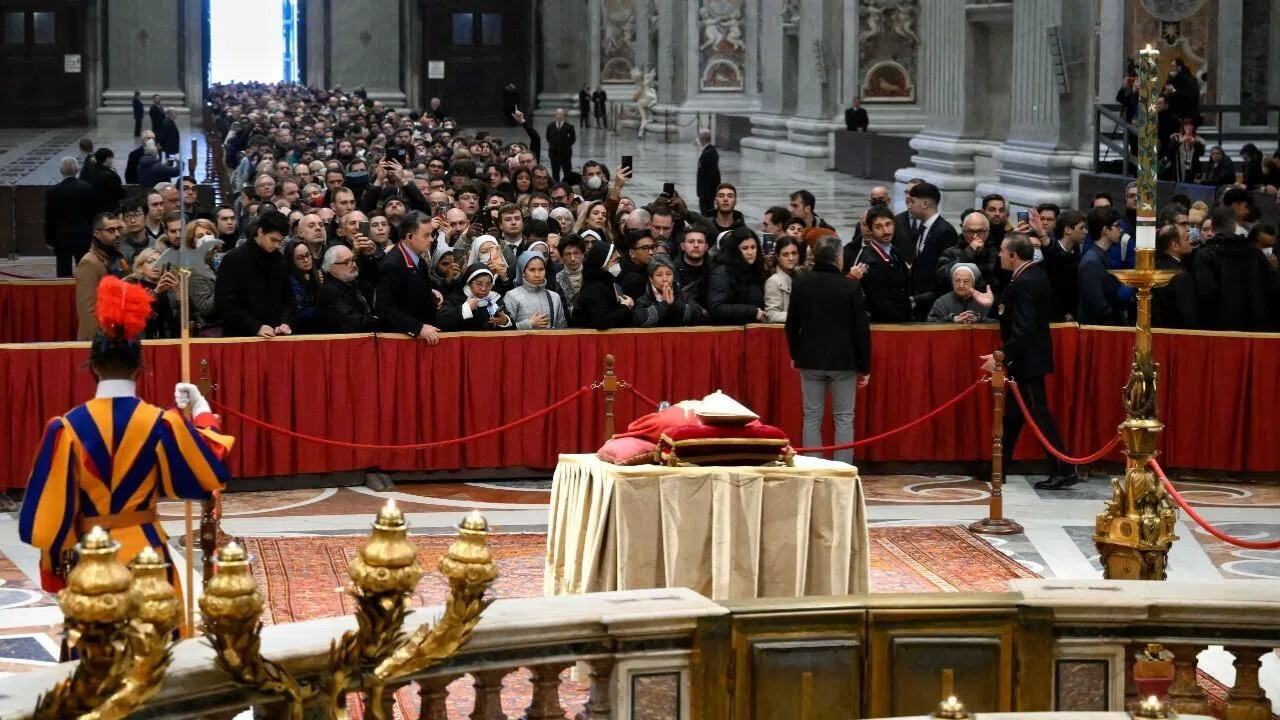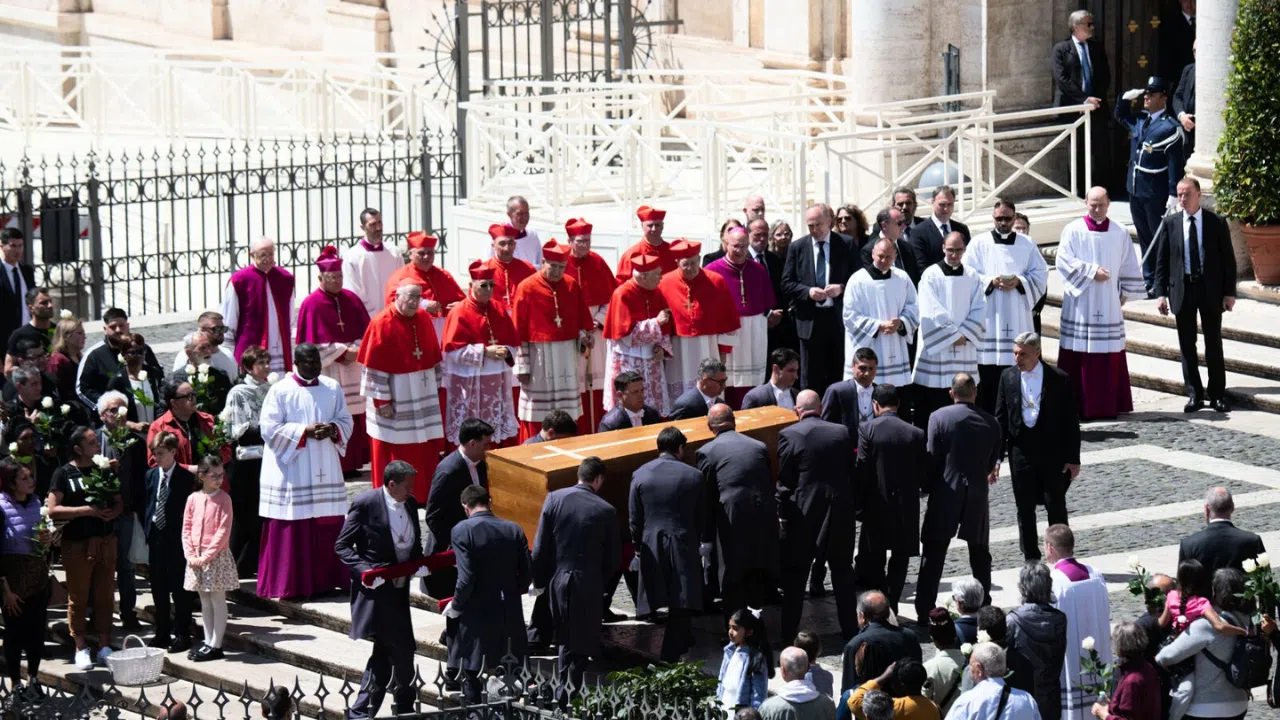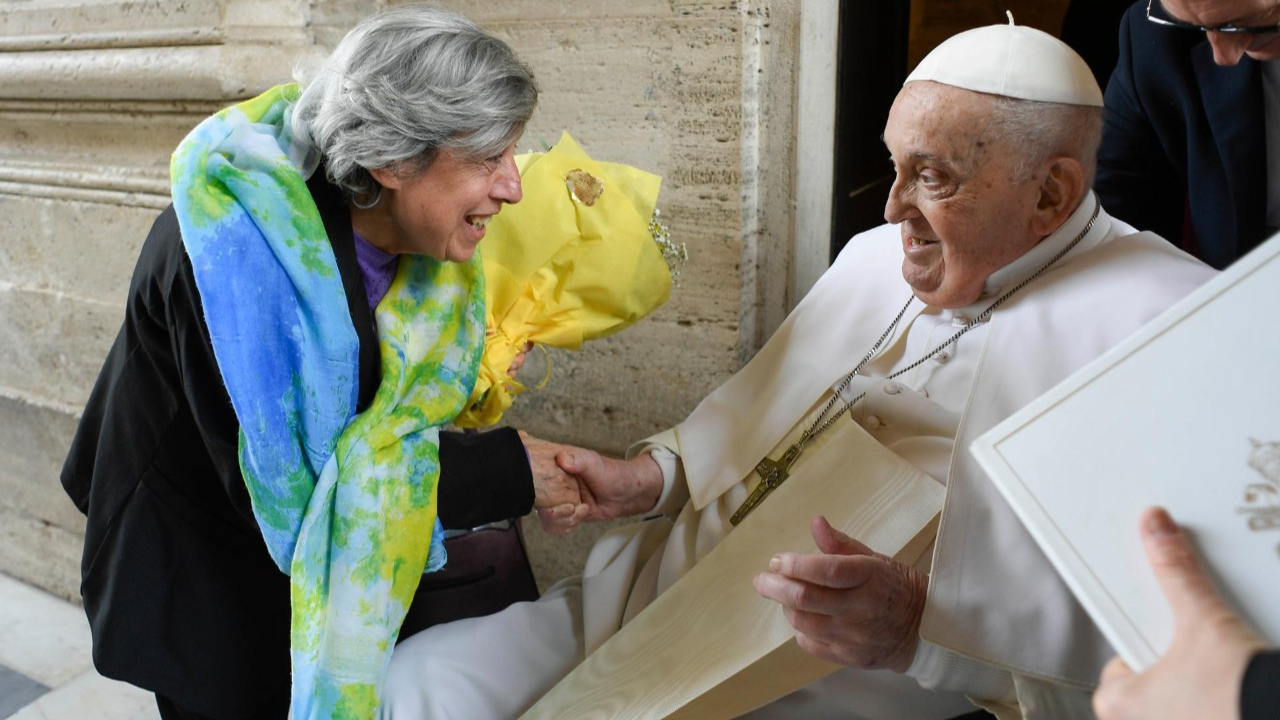In his Thursday morning Mass, Pope Francis talked about the identity of Christians. He said one cannot understand a Christian outside of the people of God. Being Christian, he explained is not about being alone, but instead about being part of a Church.
POPE FRANCIS
'Our Christian identity is belonging to a people: The Church. Without this, we are not Christians. We entered the Church through Baptism: there we become Christians.â?
To understand Jesus, he explained, one must first understand history. That's why he called on Christians to pray for the grace of memory.
SUMMARY OF POPE'S MASS:
(Source: Vatican Radio)
There is no such thing as a Christian without the Church, a Christian who walks alone, because Jesus inserted himself into the journey of His people: This was Pope Francis reflection at Mass this morning in Casa Santa Marta. Beginning with the first reading of the day, Pope Francis said that when they proclaimed Jesus the apostles did not begin with Him, but the history of the people. In fact ' Jesus does not make sense without this history' because He 'is the end of this story, [the end] towards which this story goes, towards which it walks'.
So 'you cannot understand a Christian outside of the people of God. The Christian is not a monad', but 'belongs to a people: the Church. A Christian without a church is something purely idealistic, it is not real'.
'But you cannot understand a Christian alone, just like you cannot understand Jesus Christ alone. Jesus Christ did not fall from the sky like a superhero who comes to save us. No. Jesus Christ has a history. And we can say, and it is true, that God has a history because He wanted to walk with us. And you cannot understand Jesus Christ without His history.
So a Christian without history, without a Christian nation, a Christian without the Church is incomprehensible. It is a thing of the laboratory, an artificial thing, a thing that cannot give life'. The people of God, 'walking with a promise. This dimension, it is important that we always remember this dimension of history: 'A Christian is a [memorioso â?? living memory] of the history of his people, he is a living memory of his peopleâ??s journey, he is the living memory of his Church. Memory ... memory of all of the past ... Then, where is this people going? Towards the ultimate promise. It is a people walking towards fullness; a chosen people which has a promise for the future and walks toward this promise, towards the fulfillment of this promise. And for this, a Christian in the Church is a man, a woman with hope: hope in the promise. It is not expectation: no, no! Thatâ??s something else: It is hope. Right, on we go! [Towards] that which does not disappoint'.
'Looking back - said the Pope - the Christian is a person who remembers: Let us seek the grace of memory, always. Looking forward, the Christian is a man, a woman of hope . And in this, the Christian follows the path of God and renews the covenant with God. He continually says to the Lord: 'Yes, I want the commandments, I want your will, I will follow you'. He is a man of the covenant, and we celebrate the covenant, every day ' in the Mass: thus a Christian is 'a woman, a man of the Eucharist'. This was the Popeâ??s concluding prayer:
'It would do us good today to think about our Christian identity. Our Christian identity is belonging to a people: the Church . Without this, we are not Christians. We entered the Church through baptism: there we are Christians. And for this reason, we should be in the habit of asking for the grace of memory, the memory of the journey that the people of God has made; also of personal memory: What God did for me, in my life, how has he made me walk ... Ask for the grace of hope, which is not optimism: no, no! It 's something else. And ask for the grace to renew the covenant with the Lord who has called us every day. May the Lord give us these three graces, which are necessary for the Christian identity'.
